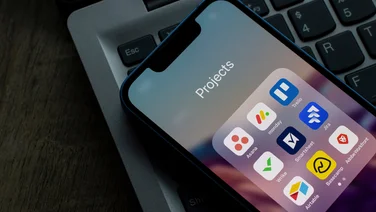To help us provide you with free impartial advice, we may earn a commission if you buy through links on our site. Learn more

- Clean, simple interface
- Limited platform support
- Short on network and identity protection
- Below-average anti-malware performance
Trend Micro has been developing security software since 1992 and takes something of a traditionalist approach. While competing suites have been reinventing themselves with the inclusion of VPNs, dark-web monitoring, and cross-device identity protection, Trend Micro Internet Security has barely changed since its last overhaul in 2015.
This does keep things simple: the interface is easy to navigate, and the suite doesn’t slow your PC down too much. However, the lack of modern features leaves some potential holes in its defences. And when it comes to conventional malware protection, Trend Micro isn’t quite as effective as the likes of Kaspersky Internet Security or Norton 360 Deluxe.
It’s also worth noting that the standard Internet Security package only works on Windows, while most rivals offer cross-platform protection. In all, Trend Micro Internet Security does what it promises, but it’s hard to see a good reason for choosing this suite over the competition.
Trend Micro Internet Security review: What do you get for the money?
Open up Trend Micro Internet Security and the main page greets you with a big, round “SCAN” button. You’ll probably never need to use this, as the software automatically scans local files and web activity for threats in real-time, but it makes a clear statement: finding viruses is job number one.

The suite’s other main functions are hidden behind the four buttons labelled: Device, Privacy, Data, and Family. Under Device, you can check your PC for performance issues, and temporarily silence notifications for a set period.
The Privacy page works with an optional browser extension to check and sharpen up your sharing settings on Facebook, Twitter, LinkedIn, and a few other social sites. It’ll also scan your privacy settings in Chrome, Edge, and Firefox – although, curiously, it doesn’t do anything about information-sharing technologies in Windows itself. You can also set it to automatically open banking and shopping websites in Trend Micro’s hardened Pay Guard browser, rather than your regular browser.

Under Data, you can configure Data Theft Protection, which blocks the transmission of personal information such as your credit card number or home address. And Trend Micro’s anti-ransomware module intercepts all unrecognised programs that try to access your personal folders (plus any others you specify), so nothing can mess with your files without your permission.

Finally, the suite’s parental control module, under Family, lets you limit which apps and websites your kids can use, and set schedules for internet access. However, these restrictions only apply to the PC the software’s running on, so if your child has their own iPad or Chromebook, it won’t be covered.
It’s noticeable that there’s no Network tab: Trend Micro relies on the standard Windows firewall for intrusion prevention (although it does add a botnet-detection module). It doesn’t offer any tools for testing or monitoring your home network, nor is there a VPN for securing your traffic when you’re out and about. Aside from the social-media features, the whole thing is very much PC-centric.

Indeed, Trend Micro Internet Security only covers Windows PCs – up to three of them, at a price of £25 for a one-year subscription. If that suits your needs then it’s quite affordable, but after the first year the cost of renewal rises sharply to £60 and, since the software’s only available via the Trend Micro website, you can forget about getting a discounted deal from a third-party retailer.
If you want cross-platform support, you can move up to Trend Micro Maximum Security. This costs an extra fiver in the first year, which isn’t a bad deal as it covers up to five systems running Windows, macOS, Android, iOS, or ChromeOS. Maximum Security also includes a password manager and 24/7 technical support, but the second-year pricing sees an even bigger jump, to £80.
Meanwhile, those on a tight budget can opt for the lightweight Trend Micro Antivirus+ package. This matches all the protections against malware, ransomware, phishing, and other web-based threats that can be found in the Internet Security suite, but it drops the parental controls and social media features. It costs £10 in the first year for a single Windows device, doubling in the second and subsequent years.
READ NEXT: The best antivirus software to use
Trend Micro Internet Security review: Will it keep you safe?
Trend Micro’s antivirus capabilities have been regularly put to the test by independent lab AV-Test.org, most recently in its February 2023 group test of consumer security suites. Testers exposed the software to 11,876 samples of prevalent malware discovered online during the first two months of the year, plus 363 brand-new zero-day attacks, including web- and email-borne threats.
Trend Micro’s performance in this test can’t be faulted. Like most of the big-name security suites, it swept up every threat, both old and new:
| AV-Test.org protection results, Jan/Feb 2023 (%) | 0-day Jan | 0-day Feb | Widespread Jan | Widespread Feb |
| Avast One | 100 | 100 | 100 | 100 |
| AVG Internet Security | 100 | 100 | 100 | 100 |
| Avira Internet Security | 100 | 100 | 100 | 100 |
| Bitdefender Internet Security | 100 | 100 | 100 | 100 |
| Eset Internet Security | 98.9 | 98.3 | 100 | 100 |
| F-Secure SAFE | 99.5 | 100 | 100 | 100 |
| G Data Total Security | 100 | 100 | 100 | 100 |
| Kaspersky Premium | 100 | 100 | 100 | 100 |
| Malwarebytes Premium | 98.9 | 97.8 | 100 | 100 |
| McAfee Total Protection | 100 | 100 | 100 | 100 |
| Microsoft Windows Defender | 100 | 100 | 100 | 100 |
| Norton 360 Deluxe | 100 | 100 | 100 | 100 |
| Trend Micro Internet Security | 100 | 100 | 100 | 100 |
Before we hang out the bunting, let’s look at another test carried out by AV-Comparatives.org and published in March 2023. This used 10,015 threat samples, and assessed not only malware protection, but also whether security packages were able to pre-emptively identify threats, both with and without an internet connection. This time, none of the contenders achieved a 100% score, and Trend Micro in particular fell well short of perfection, particularly at offline detection:
| AV-Comparatives protection results, March 2023 (%) | Offline detection | Online detection | Online protection | False positives |
| Avast One | 96.90% | 99.50% | 99.97% | 2 |
| AVG Internet Security | 96.90% | 99.50% | 99.97% | 2 |
| Avira Internet Security | 97.00% | 99.10% | 99.96% | 2 |
| Bitdefender Internet Security | 98.10% | 98.10% | 99.94% | 6 |
| ESET Internet Security | 97.40% | 97.40% | 99.94% | 0 |
| F-Secure SAFE | 96.90% | 98.70% | 99.96% | 14 |
| G Data Total Security | 98.80% | 98.80% | 99.95% | 2 |
| Kaspersky Premium | 90.00% | 97.90% | 99.96% | 2 |
| McAfee Total Protection | 89.60% | 99.70% | 99.99% | 9 |
| Microsoft Windows Defender | 83.10% | 99.30% | 99.98% | 32 |
| Norton 360 Deluxe | 91.10% | 99.70% | 99.99% | 3 |
| Panda Dome | 72.20% | 95.50% | 99.97% | 102 |
| Trend Micro Internet Security | 60.90% | 91.80% | 97.19% | 10 |
These detection scores are frankly embarrassing from a suite that makes scanning a central part of its identity. And a bigger concern is the fact that Trend Micro is well behind the pack when it comes to actually blocking active threats – 97.19% isn’t an awful protection rate, but when every other major security suite achieved a higher score, that can only reflect poorly on Trend Micro.
Trend Micro also racked up a disappointing false-positive rate, wrongly flagging ten harmless items as suspicious. This isn’t as alarming as it may seem though, as all of the wrongly detected files were ranked by AV-Comparatives.org as “very low prevalence”, so it’s unlikely that you’ll run into false positives in real-world use.
READ NEXT: The best password managers to use
Trend Micro Internet Security review: Will it slow your computer down?
To test how Trend Micro Internet Security affects your PC’s performance, we used our own browser-based benchmark, which automates Google Chrome on Windows 11 to open and download several sets of files from a web server on our local network.
We ran the test twice – once with Trend Micro’s browser extension installed, as recommended, and again with the extension disabled, to see if this had any bearing on performance.

In the event, we found that files did open in the browser slightly more quickly with the extension disabled – but even then, Trend Micro was still one of the slower security suites we’ve tried. Opening ten PDFs and JPEGs with Trend Micro Internet Security installed was barely any faster than with the standard Windows Defender antivirus, taking 0.78 and 0.84 seconds with the extension disabled and 11 and 11.2 seconds with it switched on. Using Windows’ native protection, the same files opened in 0.84 and 0.96 seconds.

That pattern was repeated when we tried saving files to the hard disk. Our ten EXE and Zip files were downloaded in 7.6 and 16.8 seconds respectively, regardless of whether the Trend Micro extension was enabled. That’s slower than the 6.0 seconds Defender took to save the executables, but just a touch faster than the 17.7 seconds it took for the Zip files.
AV-Test.org obtained similar results in its own tests, reporting that Trend Micro slowed down performance by an average of 25% when visiting popular websites, versus 17% when using Windows Defender.

On the plus side, AV-Test.org noted that Trend Micro’s software had a comparatively light 11% impact on the speed of application launching, and caused a mere 2% slowdown for file-copy operations. AV-Comparatives.org, in its October 2022 performance tests, rated Trend Micro as “very fast” for all desktop and online tasks – aside from launching newly installed applications for the first time, which was merely “fast”.
In all, Trend Micro won’t grind your computer to a halt, but you can expect a slicker web-browsing experience with a faster package, such as: Bitdefender Internet Security, Eset Internet Security, Kaspersky Internet Security, or Norton 360 Deluxe.
Trend Micro Internet Security review: Should you buy it?
If you have a couple of Windows PCs to protect, Trend Micro Internet Security is a likeably straightforward solution. It feels uncomfortably dated though, offering no protection against the growing threat of leaked or stolen credentials. The Windows-only approach feels distinctly backward too, especially when it comes to social networks: Trend Micro can keep you safe on MySpace (remember them?), but not on TikTok, Snapchat, or Instagram.
Even if you’re happy to live with these shortcomings, the protection and performance that Trend Micro Internet Security offers is merely acceptable, all while for a price that’s in the same ballpark as more impressive contenders, such as Eset Internet Security and Norton 360 Deluxe. Hopefully, we won’t have to wait too long for an update that brings the suite into the 2020s, but until then we’d have to recommend you give this release a miss.






